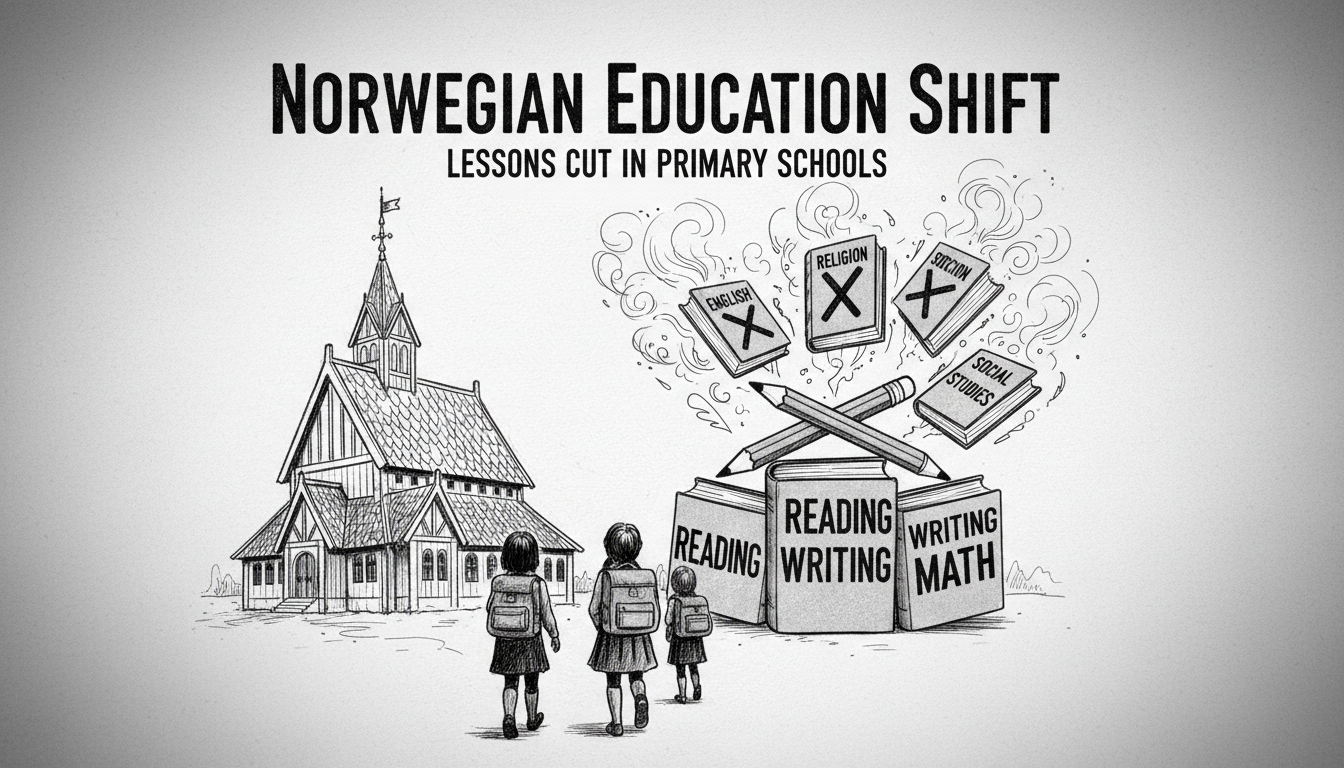Norway's Education Minister Kari Nessa Nordtun wants to reduce classroom hours for young students. She proposes eliminating English, religious education, and social studies in early school years. The minister aims to strengthen focus on reading, writing, and mathematics instead.
Nordtun believes these changes will improve learning outcomes for children. The proposal involves fewer formal classroom hours and more time in after-school programs. This represents a significant shift in Norway's educational approach.
"The most important thing is that the youngest children read, write and learn arithmetic," the minister said in a statement. "In addition to being active, creating friendships and working on problem solving through practical and aesthetic subjects. I think English, religious education and social studies can wait."
This proposal marks a potential reversal of Norway's six-year school reform. That earlier reform expanded subject offerings for younger students. Now the government appears to be reconsidering that approach.
Norwegian education has traditionally emphasized broad learning across multiple subjects from an early age. The current system introduces English instruction beginning in first grade. Religious education and social studies typically start around the same time.
The minister's plan would fundamentally change this structure. It prioritizes core literacy and numeracy skills over foreign languages and social sciences. This reflects growing concerns about declining test scores in basic subjects.
International assessments show Norwegian students have slipped in mathematics and reading rankings in recent years. The government appears to be responding to these trends with a back-to-basics approach.
Parents and educators will likely debate this proposal extensively. Some may welcome the increased focus on fundamental skills. Others might worry about reducing children's exposure to languages and social education.
The changes could affect Norway's competitive position in global education rankings. They might also influence how quickly children develop language skills and cultural understanding.
Education policy changes in Norway typically require parliamentary approval and stakeholder consultation. This proposal will likely undergo significant discussion before any implementation.
Norwegian schools have consistently ranked well internationally for overall quality. This potential shift represents a notable departure from current practices. It signals the government's concern about foundational skills development.
The minister's statement suggests she views the current system as overloading young students. She emphasizes the importance of practical learning and social development alongside academic basics.
This proposal comes amid broader discussions about educational approaches across Nordic countries. Norway's neighbors have also been reevaluating their primary education systems in recent years.
The outcome could set a precedent for other nations considering similar reforms. Many countries struggle to balance comprehensive education with strong foundational skills.

